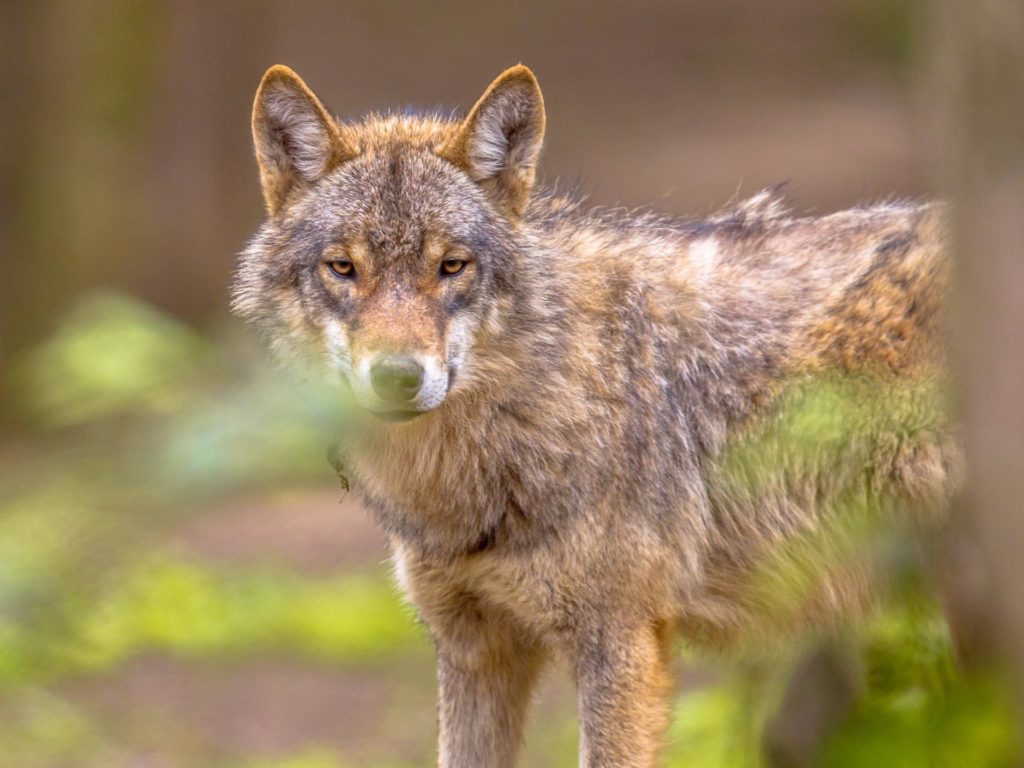Two of the top equestrians in Flanders are calling on the Belgian government to take action regarding the presence of wolves in the area, and political parties are urging Flemish Minister of Environment Zuhal Demir to look into relocating the species.
Some of the most expensive horses in Flanders are stabled directly in the territory of wolves, according to the Flemish infocentre for agriculture and horticulture (VILT).
Jozeph “Jos” Lansink, an equestrian from the Netherlands currently representing Belgium in the show jumping, and Ludo Philippaerts, a Belgian show jumping rider from Limburg, have expressed anxiety regarding this.
“I'm scared every morning: what am I going to find?” Lansink, whose horse farm is just 500 metres from where a wolf attack occured this week, told Het Belang van Limburg.
“There are twenty horses outside here. If a wolf can attack a cow five hundred metres away in a meadow, why would he leave my horses alone?”
Lansink said he had electric fencing installed three years ago to keep wild boars from damaging the land.
“But that doesn't stop the wolf,” he said.
Related News
While the Flemish government has paid farmers just shy of €30,000 for cattle lost to wolf attacks, compensating prize horses would be far more costly.
“It’s about the emotional value, and that is just as big regardless of the price of a horse. For people who have lost a pony, this is also like losing a family member,” Lansink said, adding that “soon it will happen here.”
He said they’ve already seen a wolf while riding in the woods and that the rider was able to quickly get away.
“I phoned Natuurpunt. The wolf does not attack people or horses, they said. But the wolf was clearly not scared,” said Lansink.
“The most important thing is that something is done quickly. The wolf just doesn't belong in an open space. I hear that it even reaches the village. Section off a piece of forest, and make sure the wolves are protected there. That way they can't hurt people or animals.”
Philippaerts’ horse farm is nearby, as well, and he’s not confident that his fields can be made effectively “wolf-proof.”
“A wolf will jump over a two-metre fence if it has to. That doesn't stop them,” he said.
“We need a solution now, not tomorrow or the day after or in a month's time.”
Making fences wolf-proof, as the government has been trying to do, is expensive.
For small livestock such as sheep and goats alone, the Flemish government estimates that there’s a grazing area of around 2000 hectares located in wolf territory - that would cost upwards of €7.5 million to properly fence off.
The Flemish Government is currently aiming to wolf-proof 200 hectares per year in the most at-risk areas for the annual cost of €420,00 to €480,000.
But the fences are also not a guarantee of protection. Some of the wolf attacks in Flanders occurred in meadows that were made wolf-proof by the fencing.
“Whether a horse costs ten thousand euro or a million, it’s about the emotional value of such an animal for the owner,” said Philippaerts. “If something goes wrong with a top horse it is just as bad as when a mare and her foal are attacked.”
He says it isn’t just professional equestrians who are concerned, either.
“People here are worried. They don't dare go for a walk alone any more. They suddenly find themselves face to face with the wolf as they sweep their driveway. This is very much alive here.”
Political parties CD&V and Open VLD have also urged Flemish Minister of Environment Zuhal Demir to consider relocating the area’s wolves in order to protect horses.
Multiple organisations have also joined the call for a solution, including Boerenbond and several equestrian clubs, who released a joint statement demanding action.
“Wolf policy does not work,” they said. “There is an urgent need to examine how the current untenable situation can be tackled.”
“A lot of leeway was given to the wolf in Flanders, but after two years one should dare to ask whether the wolf really belongs in our densely populated area. The relocation of a (problem) wolf to another habitat in Europe, where this animal will have the space it needs, should be examined and considered.”
Glenn Maes, chairman of Paardensport Vlaanderen, said that the needs of horses are equally as important.
“It’s clear that wolf behaviour is going in the wrong direction and that an intervention is needed to tackle this problem of problem wolves in a concrete way,” said Maes.
“Enclosing meadows in a ‘wolf-proof’ way is a hopeless task. It is also impossible to impose an obligation to keep horses indoors. These animals just need movement, grass and space.”
While even Natuurpunt concedes that a solution is needed, they say there’s no need to panic, and that they’d expected a spike in wolf attacks.
“It’s important that we acknowledge the concern that arises as a result, but local politicians and certain sector organisations that cultivate panic and put forward solutions that are not allowed by law or do not work in practice, undermine the efforts that have been made over many months to achieve a better support base,” the nature organisation said in its newsletter.
They called on local politicians and sector organisations “to work constructively towards a conflict-free coexistence between man and wolf,” and reiterated the usefulness of wolf-proof fencing.
“We have to help the cattle farmers by announcing solutions that do work. More than 150 cattle farmers in Limburg received a wolf-proof fence and suffered no damage afterwards,” said Natuurpunt.

